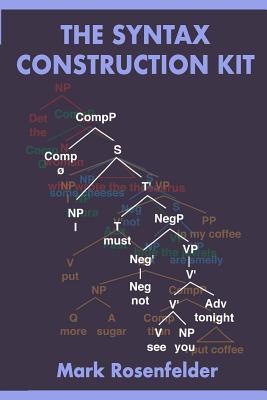Syntax can be frustrating, because there are multiple schools that seem to fight over inessential things. I hope I can show you that this is normal for a new field, and that it actually makes syntax fun. New discoveries are being made, and you can participate- something that's a lot harder to do in, say, quantum mechanics. The emphasis here is on doing syntax-- learning how to make and how to evaluate syntactic arguments.What's in it?
- An introduction to the Chomsky Hierarchy, a classification of grammars that's used both in linguistics and computer science, as well as a comparison to other generative techniques, such as Markov text generators.
- A tour of Chomsky's methods- production rules and transformations- with overnight stays in the Syntactic Structures, X-bar, and Minimalist stages in his thought.
- A leisurely stroll through interesting bits of syntax: the English verbal complex, pronouns and other anaphors, relative clauses, quantifiers and more. The emphasis is on doing syntax- not just learning rules and drawing trees, but learning how syntactic arguments are made.
- An overview of alternatives to Chomsky's approach: generative syntax, cognitive linguistics, relational grammars, word grammar, construction grammar, Jackendoff's Simpler Syntax, and Comrie's universals.
- A chapter on production which asks, how real are these grammars? Do we really have syntactic categories and transformations in the brain, or in the genome?
- A chapter on how you can apply all this to your conlangs.
- The Syntactic Bestiary- an annotated list of transformations and constraints, which you can think about for conlanging, or use to evaluate syntactic theories.
